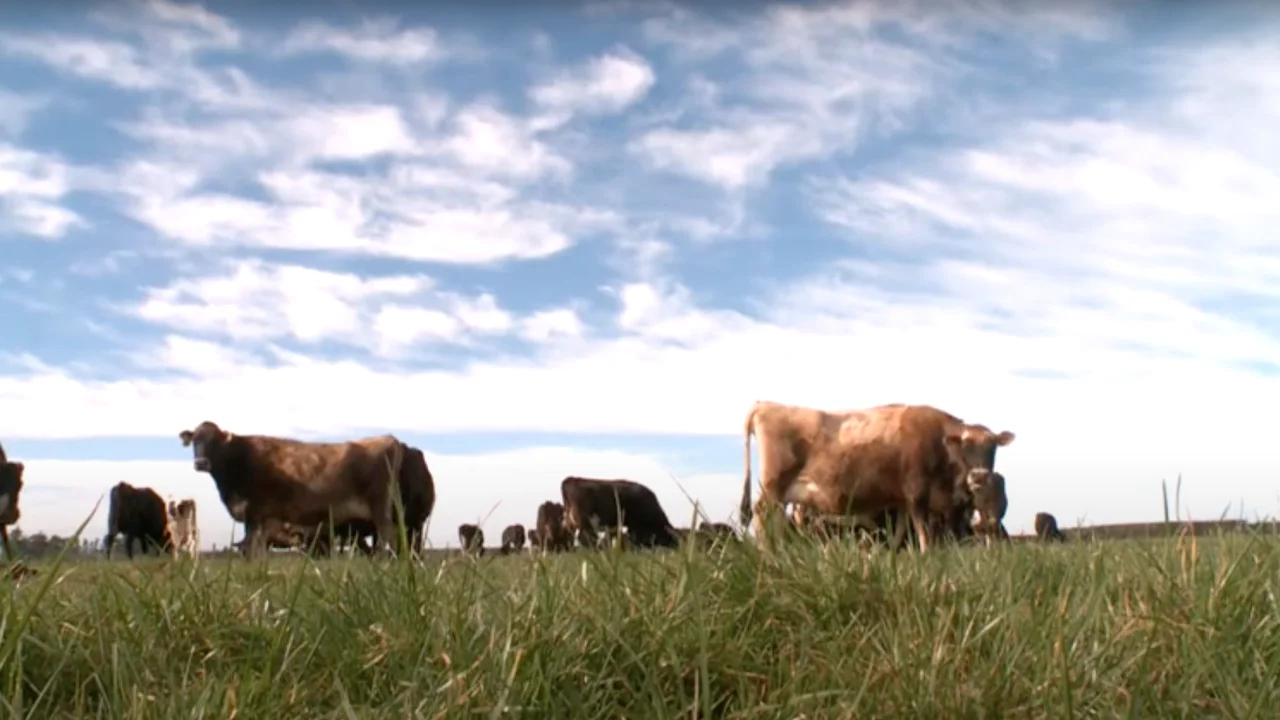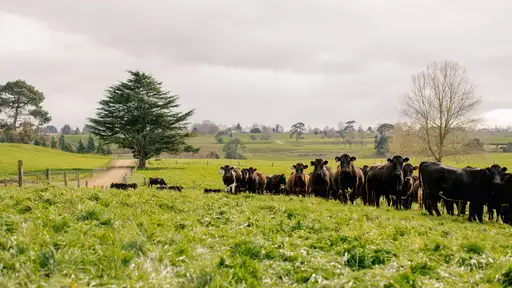Innovative breeding for a sustainable future

Resilient Dairy will drive improvements in the health and wellbeing of the national dairy herd and a step-change in sustainable milk production.
We are leading the ‘Resilient Dairy: Innovative breeding for a sustainable future’ research programme with investment and support from MPI and DairyNZ.
Launched in 2019, this seven-year Sustainable Food and Fibres Futures programme seeks to utilise disease management technologies and genomic advances to enhance the health and wellbeing of the national dairy herd and improve cow productivity.
The research includes developing new tests to detect micro-organisms that affect cow health, developing a range of new health and welfare related genomic breeding values, and improving the genomic evaluation models for New Zealand’s pastoral dairy herds.
Download the Resilient Dairy booklet, to find out more.
Facial eczema breeding value (BV)
Through the Resilient Dairy programme we have developed a facial eczema breeding value to enable farmers to breed cows that are more resistant to the facial eczema disease. The new facial eczema breeding value will initially be available to farmers in a KiwiCross® bull team featured in the LIC 2024 genetics catalogue.
To volunteer your herd for facial eczema studies, please contact [email protected]
Genomic inbreeding
Improving the accuracy of inbreeding in the animal evaluation model and including inbreeding effects in our breeding programme to increase the long-term health of our dairy population.
Genomic modelling
Developing an enhanced animal evaluation model that can incorporate new phenotypes and account for structural variants within the genome to increase the accuracy of the model and increase rates of genetic gain.
Incorporation of NZ specific genome references
All genomic analysis requires a reference genome to be compared to. Currently, the reference genome for cattle is an American Hereford. By creating New Zealand breed-specific genomic references we’ll be comparing New Zealand animals to New Zealand animals which will make better use of the genetic information, improve the accuracy of genomic predictions and allow us to discover future genetic variation of interest to the New Zealand dairy industry.
Y Chromosome investigation
Determining the influence the Y chromosome has on key breeding areas such as male fertility.
DairyNZ / Info-herds
Investment from DairyNZ will go into re-building the national evaluation system for dairy cattle to incorporate genomic information to facilitate faster rates of genetic gain. You can find out more information about this work on the DairyNZ website.
Disease and wellbeing screening
Development of a diagnostic tool suite to provide early identification of diseases in our dairy population e.g. mastitis.
Part of this work includes leveraging the analytics of a herd test and developing new techniques to identify animal health traits such as pregnancy status and Johne’s.
Biosecurity screening
Development of a diagnostic tool suite to provide early identification of notifiable diseases in our dairy population e.g. Mycoplasma bovis. Samples could be either milk, effluent or faeces.
Facial eczema diagnostics
An investigation into the potential for a milk based diagnostic tool that can identify which cows in your herd have facial eczema.

